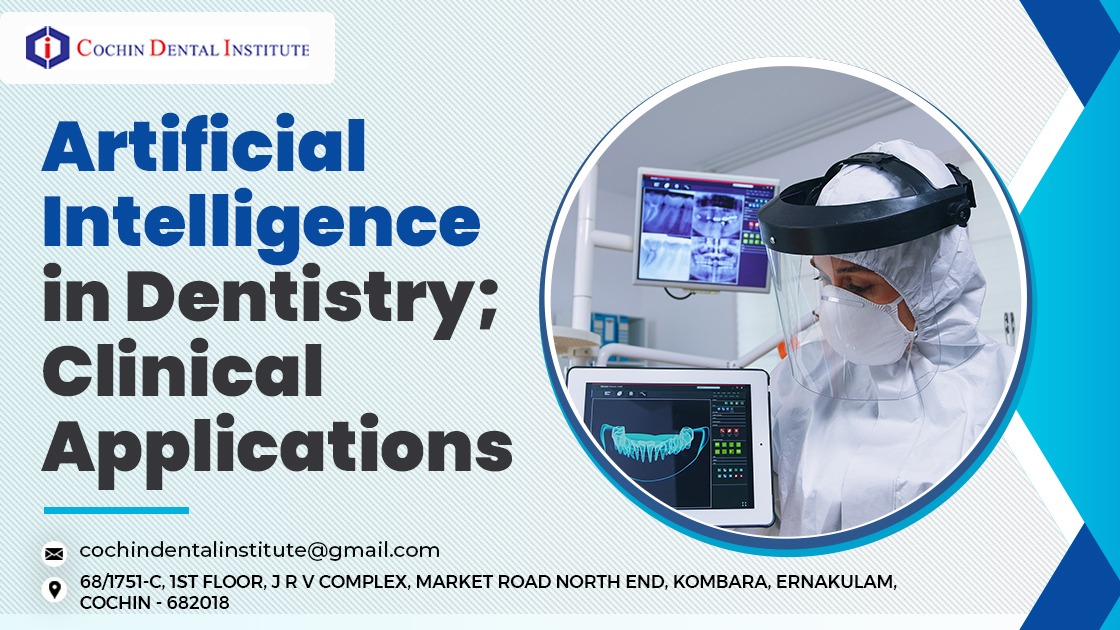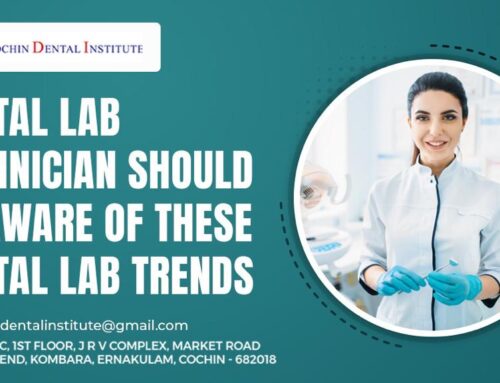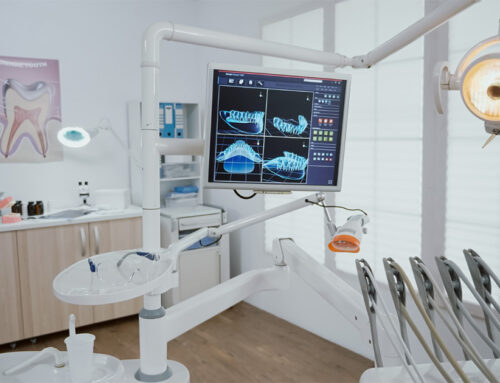Artificial Intelligence (AI) has made significant strides in various industries, and dentistry is embracing its potential to revolutionize clinical applications. With its ability to analyze vast amounts of data and recognize complex patterns, AI technology is transforming the way dentists diagnose, treat, and manage oral health conditions. Here, we explore the remarkable clinical applications of AI in dentistry, showcasing its impact on improving patient outcomes and enhancing dental practice management.
Enhancing Diagnostic Accuracy:
AI algorithms are proving to be invaluable in diagnosing dental conditions accurately. By analyzing radiographic images such as X-rays and CBCT scans, AI systems can detect dental caries, periodontal diseases, and abnormalities with remarkable precision. This assists dentists in making more informed and timely diagnoses, leading to better treatment planning and improved patient outcomes.
Image Analysis and Interpretation:
AI technology enables the efficient analysis and interpretation of intraoral and extraoral images obtained during routine dental examinations. By leveraging machine learning techniques, AI algorithms can automatically detect and highlight areas of concern, such as dental caries, fractures, or soft tissue abnormalities. Dentists can benefit from this assistance in identifying potential problems and monitoring disease progression over time.
Predictive Analytics for Personalized Treatment:
One of the significant advantages of AI in dentistry is its ability to predict the likelihood of developing specific oral health conditions. By utilizing patient data, including medical history, risk factors, and genetic predispositions, AI algorithms can assess an individual’s risk of periodontal disease, oral cancer, and other oral health issues. This enables dentists to develop personalized treatment plans and implement preventive measures, leading to proactive oral healthcare management.
Virtual Assistants for Efficient Patient Care:
AI-powered virtual assistants are increasingly being integrated into dental practices to streamline patient care. These assistants can interact with patients, provide oral hygiene instructions, answer basic questions, and even schedule appointments. By automating routine tasks, virtual assistants free up valuable time for dental professionals to focus on more complex procedures and deliver personalized patient care.
Robotics in Dental Procedures:
AI-driven robotics is transforming dental surgeries and procedures. Robots can assist dentists during complex procedures like dental implant placement, ensuring precise instrument positioning and accurate incisions. This collaboration between AI-driven robots and human dentists enhances procedural accuracy, reduces the risk of errors, and ultimately improves patient safety and outcomes.
Data Management and Research:
AI algorithms excel in managing and analyzing vast amounts of patient data, electronic health records, and research literature. By mining this wealth of information, AI can identify hidden patterns and correlations that aid in evidence-based decision-making, clinical research, and treatment outcome analysis. This valuable insight supports dental professionals in providing the highest quality of care and staying abreast of the latest advancements in the field.
Artificial Intelligence is reshaping dentistry by revolutionizing clinical applications and transforming oral healthcare delivery. From enhancing diagnostic accuracy and image interpretation to predicting oral health conditions and assisting during dental procedures, AI technology offers numerous benefits to both dental professionals and patients. As AI continues to advance, its integration into dentistry will only grow, leading to improved patient outcomes, enhanced efficiency in dental practice management, and a brighter future for oral healthcare.





